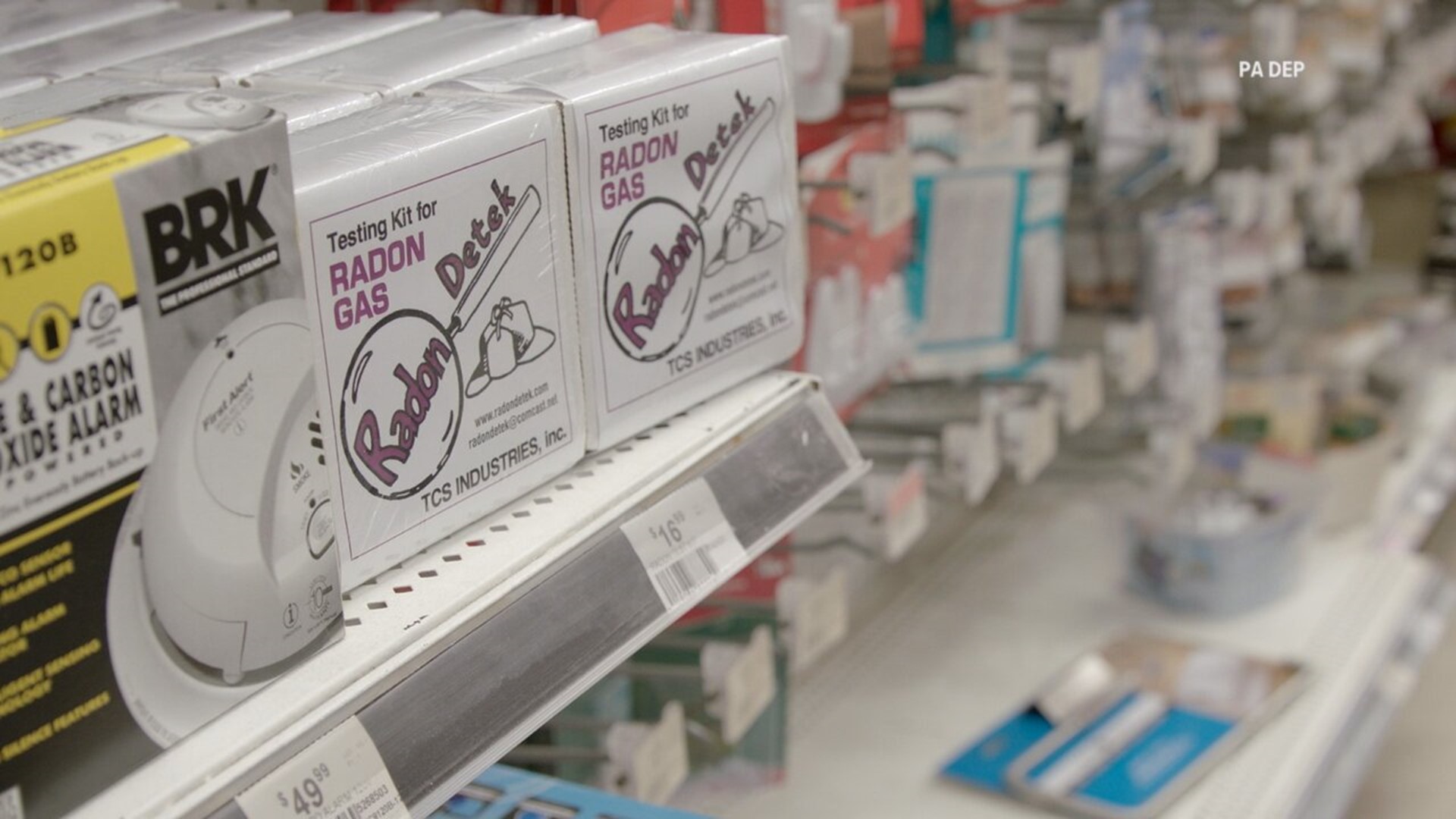PENNSYLVANIA, USA — The American Lung Association (ALA)'s State of Lung Cancer report says high levels of radon, a cancer-causing radioactive gas, are detected in 40% of Pennsylvania homes.
According to the ALA, some areas like York County, have as high as 60% of its homes over the EPA recommended level of 4 picocuries per liter of air (pCi/L).
To combat the crisis, officials are urging Pennsylvanians to get their homes tested for radon amid January's National Radon Action Month. They say testing can be done year-round, but the colder months are ideal for testing when radon levels tend to be higher and homes are in "closed-door" conditions.
"We know that Pennsylvania does have a long history of testing, but unfortunately not enough," said Kevin Stewart, the director of environmental health for the American Lung Association. "There’s plenty of homes that have not been tested. The only way to know your radon level is to do a test in your home."
Nationwide, radon reportedly causes 21,000 lung cancer deaths each year and is the leading cause of lung cancer in non-smokers.
"Lung cancer is probably the most preventable cancer that there is," said Robert Lewis, the radon program manager for the Pennsylvania Department of Environmental Protection. "If people would one stop smoking and two get radon tests we could almost eliminate lung cancer from the U.S. population."
The radioactive gas is odorless, tasteless, and colorless. It doesn’t produce any symptoms and its cancer-causing effects are often discovered after it’s too late.
"Lung cancer is a serious form of cancer that once people identify it, it’s often too late," said Stewart. "This is one of the reasons we want to prevent lung cancer from occurring in the first place."
Middletown resident Brenda English lost her husband to cancer caused by radon 10 years ago after tests revealed her Dauphin County home was at a level of 47 pCi/L, more than 10 times higher than the EPA's recommended safe level.
She says testing is an easy step to take to prevent the worst from happening.
"Nobody ever wants to see their family member go through something like this and it's so easy to prevent," said English. "Everybody should just go get tested."
Officials say Pennsylvanians are particularly at more risk because of the state's geology which contains high levels of uranium in its rocks along with other environmental factors, highlighting the importance of testing.
Officials add tests are easy to find at your local hardware store and are relatively inexpensive at about $25 to $35. A small price to pay for the safety assurance of your home.
"We’re encouraging people to do the testing now and just doing the testing period," said Lewis. "It’s so easy to test for it."
If test results are higher than the EPA's action level of 4 pCi/L, officials urge residents to take action right away. A list of certified radon service providers along with more information can be found on the Pennsylvania Department of Environmental Protection's website or call the DEP radon hotline at 1-800-23-RADON (72366).

